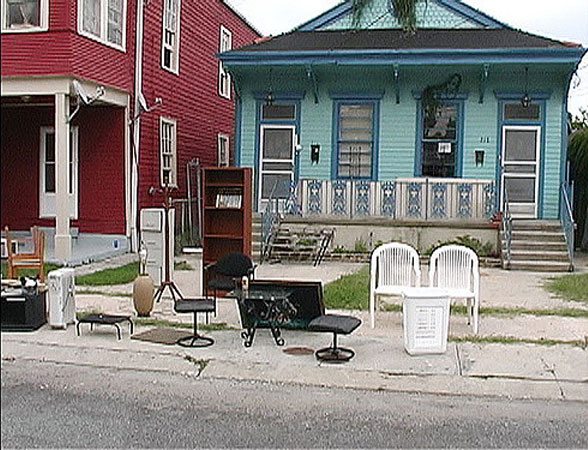
April 9, 2018; New York Times, Next City, Color Lines
This week, the New York Times published a front-page story about eviction in the city of Richmond, Virginia. The story was aided by the work of the Eviction Lab, led by sociology professor Matthew Desmond at Princeton University. NPQ covered the publication of Desmond’s Pulitzer Prize–winning book Evicted in 2016. But he has been hard at work since, collecting data from across the country to aid activists in working to prevent evictions.
At this point, the lab holds approximately 80 million eviction records going back 18 years, with the purpose of giving communities a means of comparing data, solutions, and policies on a city-by-city and county-by-county basis. The site offers customizable maps and rankings. Richmond, the city featured in the New York Times, ranks second in the country for its rate of evictions, as an example. The Eviction Lab joins other data banks for activists springing up around the country, including the police misconduct database in Chicago we reported on in 2016. At that time, the project had just received a $400,000 grant from the Knight Foundation; we quoted John Bracken, Knight’s vice president for media innovation, when he said, “The work The Invisible Institute has been doing feels like a national model for a way transparency can serve the public. As this project grows, a key component is to engage the community and have them share their experiences. They don’t rely just on a digital component—they have a way for the community to share and engage and that’s at the core of what they plan to do.”
The Eviction Lab seems structured in much the same way, allowing activists to discern patterns that might otherwise be obscured. So, for instance, what’s startling in the lab’s findings to date is that the cities with the highest rates of evictions are not the big cities in the East or West, like New York, Boston, Los Angeles, or San Francisco, but rather a concentrated area of cities in the South. An article about this research in the New York Times notes:
Sign up for our free newsletters
Subscribe to NPQ's newsletters to have our top stories delivered directly to your inbox.
By signing up, you agree to our privacy policy and terms of use, and to receive messages from NPQ and our partners.
Richmond is “in the Southeast, where the poverty rates are high and the minimum wage is low; it’s in Virginia, which lacks some tenant rights available in other states; and it’s a city where many poor African Americans live in low-quality housing with limited means of escaping it.”
“This isn’t by happenstance—this is quite intentional,” Levar Stoney, Richmond’s mayor, recently told the Times. Virginia is a state that has favored property owners “since plantation days,” he said, adding that aid to poor residents is limited, and about a quarter of the city’s population is a car repair payment or hospital visit away from not being able to make the median gross rent of $896 a month.
When Desmond authored Evicted: Poverty and Profit in the American City, he conducted most of his research in Milwaukee, where one sees high rates of poverty and low minimum wages. Here, people of color, particularly African Americans, live in low-quality housing with few alternatives. For African American women, the odds of eviction are greater than any other group. Desmond’s research found that in Milwaukee, one in five African American women reported having been evicted as adults, compared to one in 12 Latinx women and one in 15 white women, and the presence of children in a household triples the likelihood of being evicted. Greater eviction rates made finding housing even harder, since landlords screen for past and recent evictions. There can also be impacts on mental health for mothers living in poverty.
No one’s life goal is to be poor. But if you are female and African American and living in certain parts of this country, your chances of living in poverty increase simply because of your race, and your chances of being evicted from your home increase as well. Until we are prepared to address the inequity in the availability of affordable (and livable) housing, poor people of color, and especially African American women, will bear the brunt of evictions in this nation. Matthew Desmond addresses this directly in his book: “If incarceration had come to define the lives of men from impoverished black neighborhoods, eviction was shaping the lives of women. Poor black men are locked up. Poor black women are locked out.”—Carole Levine













